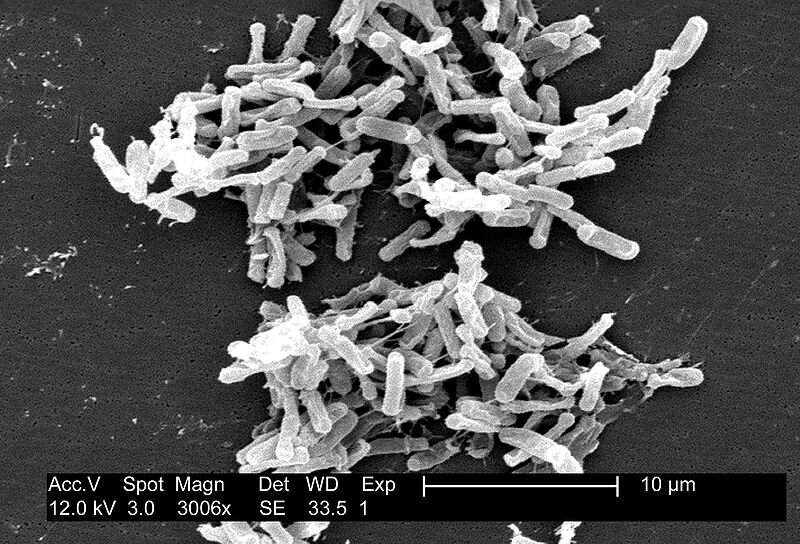Scanning electron micrograph of en:Clostridium difficile bacteria from a stool sample.Obtained from the CDC Public Health Image Library.Image credit: CDC/ Lois S. Wiggs (PHIL #6260), 2004.
Common in hospitals and nursing homes, Clostridioides difficile infection (CDI) is a major health threat, particularly for older patients. According to a 2015 study by the Centers for Disease Control and Prevention, in the U.S. the infection claims some 15,000 lives per year. Certain antibiotics, by disrupting normal gut microorganisms (microbiota), create an opening for the infection.
Developed in the early 1970s, misoprostol is an inexpensive generic drug once used to prevent gastrointestinal ulcers in people taking daily NSAIDs—that is, aspirin, ibuprofen, etc.—but it has since been replaced for that purpose by newer alternatives.
Based partly on the detrimental impact of NSAIDs during CDI, David Aronoff, MD, reasoned that misoprostol may have promise as a treatment for severe CDI.
In a study in the journal Anaerobe, Aronoff and colleagues show that misoprostol protects mice against severe CDI and promotes the recovery of mouse gut microbiota following antibiotic perturbation. With misoprostol, survival from severe CDI increased three-fold.
More information: Joseph P. Zackular et al. Misoprostol protects mice against severe Clostridium difficile infection and promotes recovery of the gut microbiota after antibiotic perturbation, Anaerobe (2019). DOI: 10.1016/j.anaerobe.2019.06.006
Provided by Vanderbilt University






















